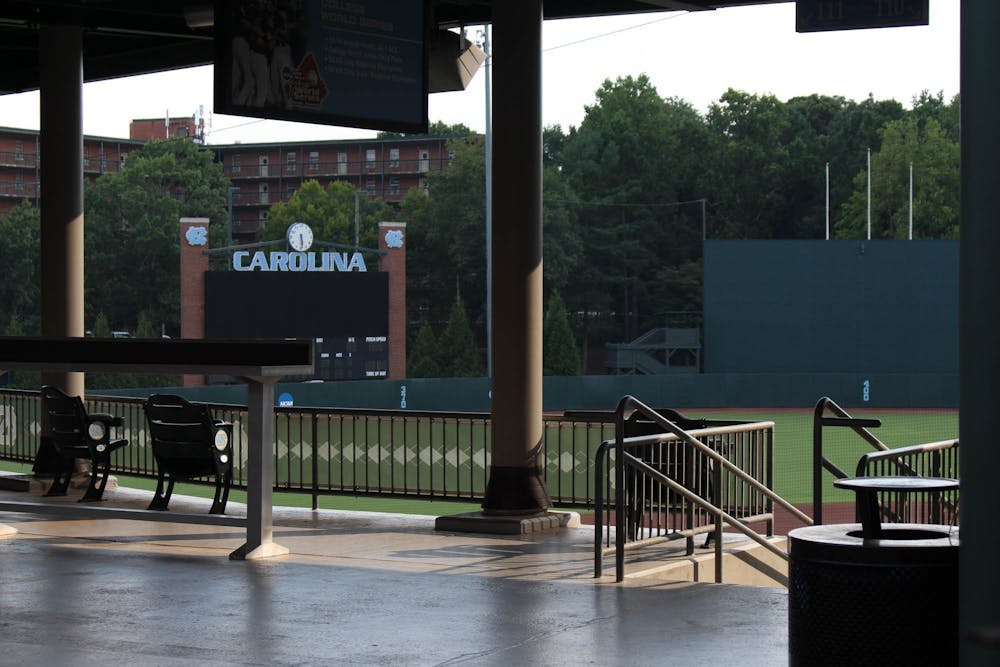If you want to catch a baseball game in the Triangle nowadays, your options certainly aren’t limited. Durham has been home to the Durham Bulls since the early twentieth century, and Zebulon in Wake County has hosted the Carolina Mudcats since 1991. Aside from the pros, UNC, N.C. State and Duke have fielded fairly strong teams in their own right.
Originating as a sport among prisoners of war during the Civil War, baseball has established itself as a popular past-time across North Carolina.
Baseball has been in the state since the Civil War when Union prisoners of war brought the sport to the state. Following one such game in the prison yard, an inmate mourned the loss that a prisoner team from New Orleans suffered at the hands of another prisoner team from Tuscaloosa. He wrote in his journal, the “cells of the Parish Prison were unfavorable to the development of the skill of the ‘New Orleans Nine.’” According to a physician imprisoned at the camp, Independence Day, 1862 was “celebrated with music, reading of the Declaration of Independence, and sack and foot races in the afternoon, and also a baseball game.”
Four decades later, the first professional baseball teams arrived in central North Carolina, with the introduction of the Durham Tobacconists in 1902. The team played their first game of the season on May 5, 1902, against Charlotte, losing 12-2. Just two months later, the team collapsed after its owner refused to send the players to New Bern for a game.
Neighboring Raleigh had a similarly short-lived experience with baseball at the turn of the century. The Raleigh Senators (later renamed the Raleigh Red Birds) lasted somewhat longer than the Tobacconists, falling apart after two years instead of just a few short months.
Professional baseball would return to the area 11 years later in the form of the newly founded Durham Bulls. Following an interruption as a result of World War I, the Bulls began playing once again at the newly minted El Toro Park in 1926. On the field’s opening day, then-baseball commissioner Judge Kenesaw Landis rode a bull onto the field. Tragically, El Toro Park (at that point, renamed to Durham Athletic Park) burned to the ground in the '30s but was rebuilt and continued to serve as the Bulls’ home for half of a century.
Around the same time, Raleigh experienced its own baseball renaissance. While Durham Athletic Park was being rebuilt, Raleigh was building its own stadium named Devereux Meadows. A new team, the Raleigh Capitals, would play there during the '50s and '60s.
Like professional baseball everywhere in the United States at the time, the sport was racially segregated. Three Black teams would find a home in Raleigh: the Raleigh Tar Heels, the Raleigh Tigers and the Black Star Line. Another, the Black Sox, played in Durham. Very little is known about these teams' performances, as box scores were rarely kept.
Eventually, however, just as had happened across the country, North Carolina baseball desegregated. In 1957, the Durham Bulls welcomed its two first Black players, Bubba Morton and Ted Richardson. Despite the desegregation of the team, Durham Athletic Park remained segregated. On the Bulls’ opening day, Black demonstrators poured into the park’s whites-only section in an attempt to integrate it. Though this attempt ended in failure with the demonstrators being escorted out of the park, DAP would be integrated seven years later in 1964 as a result of local community organization efforts.




